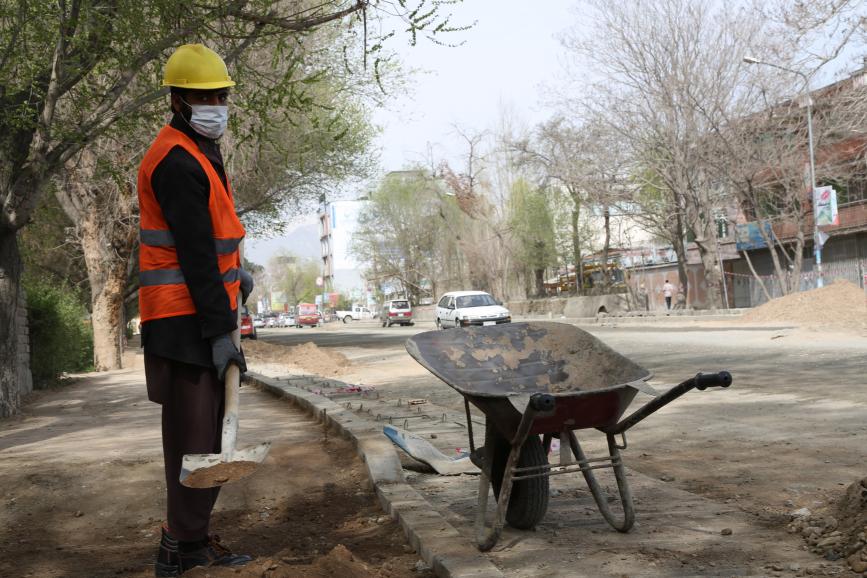Afghanistan Community Resilience and Livelihoods (CRL) Project

The economic and political crisis in Afghanistan has impacted the poor and vulnerable and led to significant disruptions in business activities, unemployment in rural and urban areas, and restrictions in women’s mobility and access to work. These challenges emphasize the urgent need for improved delivery or maintenance of essential services, such as community roads and streets, flood walls, and agroforestry. The ARTF’s support focuses on sustaining urgent basic services and providing short-term livelihood opportunities in rural and urban areas.
The support is being delivered through six key components: (a) livelihood support & climate-resilient infrastructure; (b) urban livelihood support and services; (c) supporting women and vulnerable groups; (d) empowering communities for inclusive and resilient services; (e) project management and support; and (f) preventing sexual exploitation and harassment.
Livelihood Support & Climate-Resilient Infrastructure - It focuses on strengthening rural livelihoods through cash-for-work programs and the rehabilitation of essential, small-scale infrastructure. The project prioritizes climate-resilient infrastructure, focusing on clean water systems, sanitation facilities, irrigation networks, and tertiary roads to help communities strengthen their sustainability and achieve lasting resilience.
Urban Livelihood Support and Services - This component aims to create livelihood opportunities for unskilled and semi-skilled workers in urban areas. It also addresses urgent service delivery needs through small-scale, labor-intensive works (LIWs), helping improve living conditions while boosting local employment.
Supporting Women and Vulnerable Groups - This component provides targeted support to the most vulnerable households in both rural and urban areas, especially those unable to participate in physical labor. The assistance will be provided through grants for food and grain banks and cash support. In rural areas, the program also offers training, asset transfers, and market access to help vulnerable groups build sustainable sources of income. Priority is given to women-headed households and persons with disabilities.
Empowering Communities for Inclusive and Resilient Services - This component focuses on strengthening local institutions to deliver more inclusive and climate-resilient services, with a special emphasis on women’s participation. It supports community mobilization, training, and capacity-building for Community Representative Groups to lead efforts in planning, implementing, and monitoring local development initiatives.
Project Management and Support - This component covers the costs to help our UN partner manage the project smoothly. It includes providing technical help, training, tracking progress, and sharing results.
Preventing Sexual Exploitation and Harassment - This component focuses on keeping communities safe by putting in place measures to prevent sexual exploitation and harassment. It supports actions and systems to ensure accountability within the areas that fall under the CASA-1000 geographical scope.